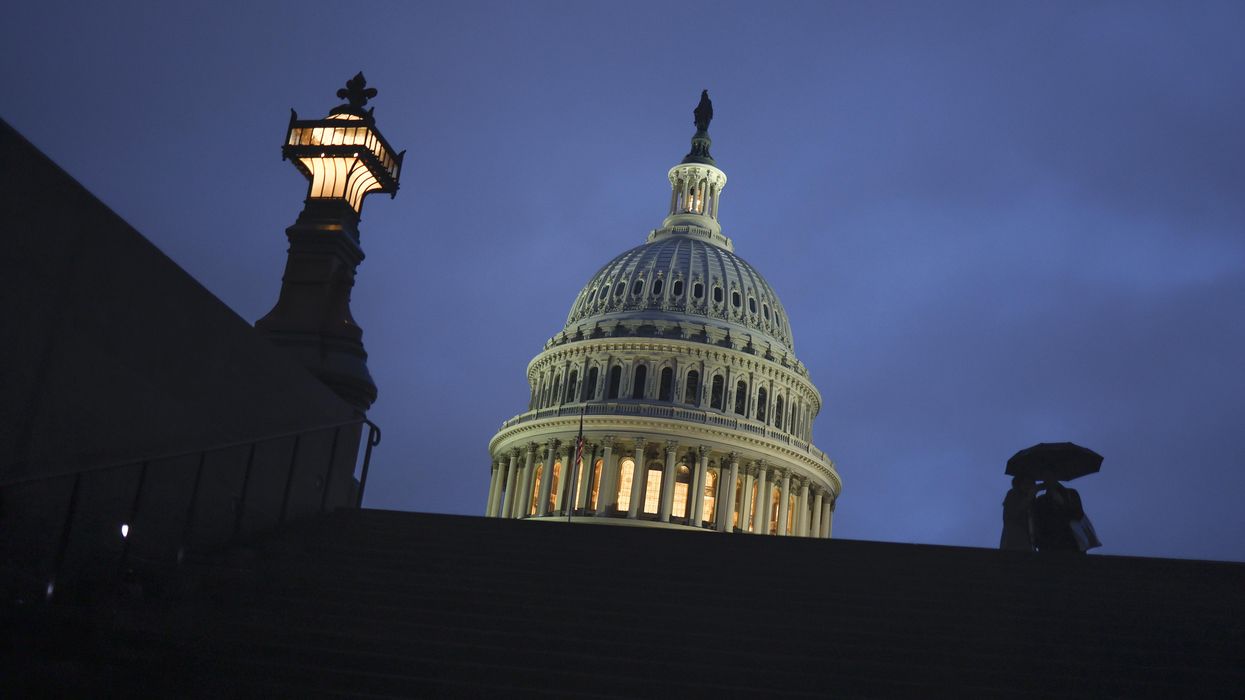Aftergut, a former federal prosecutor in San Francisco, is co-counsel to Lawyers Defending American Democracy.
When Charles Darwin returned to England in 1836 from two years aboard the HMS Beagle, visiting the Galapagos Islands, Chile and Australia, he reflected on his observations of rare species and developed his theory of evolution.
His “Origin of Species” shook the scientific world with his concept that genetic variations explain how organisms adapt and thrive, particularly when adverse conditions threaten them.
Likewise for human organizations – business or government institutions nimble enough to adjust to adversity can reform and grow.
Such evolution is not automatic. It requires stakeholders who demand it.
In democracies, progress requires that groups suffering harm or foreseeing danger advocate forcefully for change. With a MAGA House majority about to take power in Washington, vigilance in the next two years by those committed to individual rights, equality and constitutional government will be essential.
We’ve just seen three examples in Congress showcasing such activism from ordinary Americans.
First, on Dec. 7, President Joe Biden signed #MeToo legislation that bars employers’ nondisclosure agreements requiring employees to remain silent rather than complain about sexual harassment.
Astonishingly, every senator voted for the law banning these forced-gag agreements. Senate unanimity took a national consensus that did not exist a decade ago. The #MeToo movement built it; women bravely spoke out, told their stories and changed American society.
Second, on Dec. 13, Biden signed the Respect for Marriage Act. It reversed 1996’s shameful Defense of Marriage Act, signed by President Bill Clinton for culture war advantage. Two decades before same-sex marriage became a constitutional right, DOMA said states that barred such marriages need not recognize same-sex unions from states that permitted them.
The Respect for Marriage Act mandates that all states recognize gay marriages lawfully performed in other states. That matters should the Supreme Court majority overturn those marriages’ constitutional protection. Justice Clarence Thomas has hinted at that.
Again, it took committed activists – this time the LGBTQ community – to achieve a goal that looked impossible a generation ago. Gallup has reported that the paltry 26 percent of Americans who supported same-sex marriage in 1996 has risen to 71 percent in 2022.
Bear with a personal story illustrating that in politics, like physics, for every action, there is an equal and opposite reaction, at least if sufficient human forces mobilize in response. Therein lies hope when bad things happen.
In 1998, I led a legal team in a case that was a steppingstone to gay marriage rights. We successfully defended San Francisco’s Equal Benefits Ordinance, which enormously expanded domestic partner benefits in the city and, indeed, across the nation.
The ordinance came about because three gay and lesbian activists were furious about DOMA. On the theory, “Don’t get mad, get equal,” they persuaded local legislators to adopt the law. A bad event begat a good.
Which takes us to the third piece of legislation. On Friday, Biden signed a federal spending bill that includes the Electoral Count Reform Act. The ECRA is a crucial step to preserve our democracy, closing loopholes in its 1887 predecessor that former President Donald Trump nearly exploited to overturn the 2020 election.
The new law clarifies that the vice president’s role presiding over the certification of a presidential election is purely ceremonial. They cannot reject a state’s official electoral votes or delay the congressional certification, as Trump unsuccessfully tried to pressure Mike Pence to do.
Another key change is to limit state legislatures’ power to declare the winner. The reform act clarifies that a “failed election” occurs only when a force majeure has interrupted the balloting. Without that change from the 1886 Electoral Count Act, a renegade, Republican-dominated, MAGA legislature could wrongly declare that “ballot fraud” caused the election to “fail” and then select the losing candidate.
Like the #MeToo legislation and the Respect for Marriage Act, this reform happened because of grassroots organizations committed to preserving democracy. And like those other bills, this legislation came in reaction to a threat – in this case, the lame duck Congress was pushed to act by the election of a House MAGA majority unlikely to approve the change.
The incoming House leaders have told us what they will do: not legislate but devote all their attention to a scorched earth strategy of attacking Biden, his family, the Jan. 6 committee, the FBI and the Justice Department.
They won’t work to enact kitchen table legislation; in fact, they are likely to try cutting Social Security and Medicare. Negative action and attack will be their trademarks.
For the rest of us who want positive government, democracy is not a spectator sport. The danger to it in the new House is as obvious as the Capitol dome. The essential thing is to mobilize to contain the threat.
We, the people, can keep our democracy by responding to the next two years’ anti-democratic overreach by MAGA House members. Then in 2024, we can vote them out and evolve, in Darwinian fashion, into the better version of America’s self.




















Trump & Hegseth gave Mark Kelly a huge 2028 gift